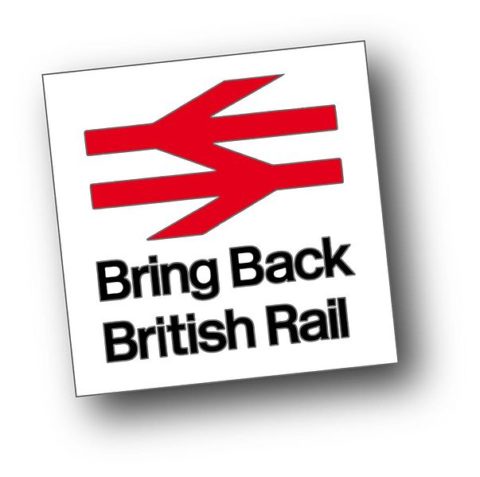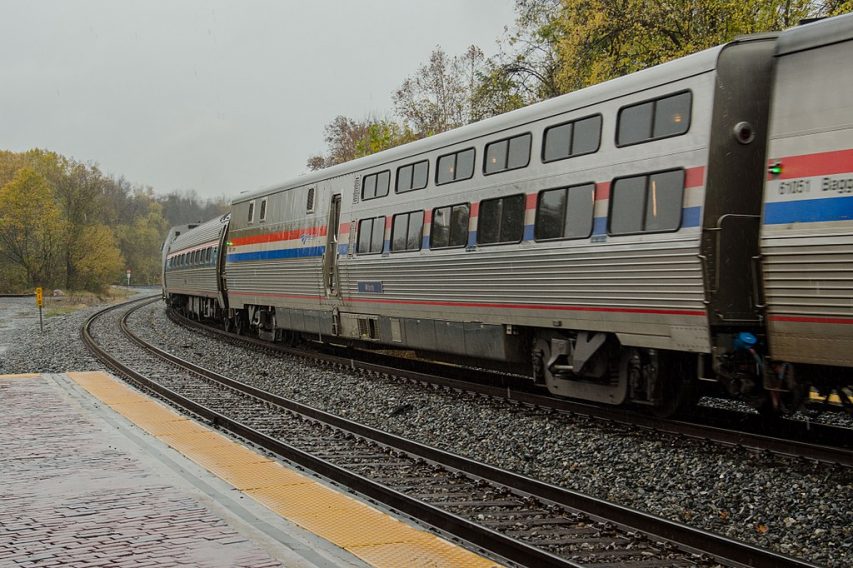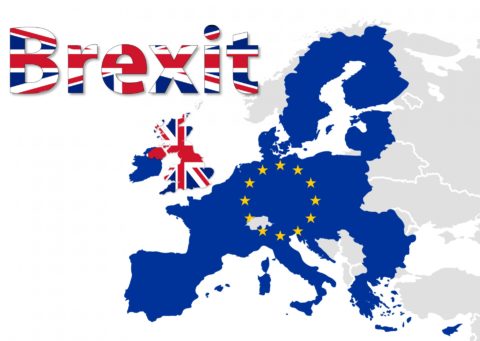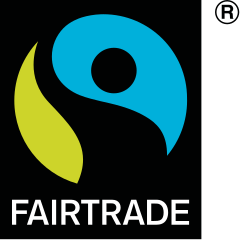Adrian Quine looks at the long-term results of the partial privatization of British Railways, and the current British government’s options to address some of the problems:

Wikimedia caption – “This is the Bring Back British Rail, a reverse image of the old BR logo, (now used by the TOC’s) to show we are heading the wrong way with Rail in the UK”
If there is one thing free marketeers and large state socialists agree on, it would be the terrible state/private hybrid ownership structure of our railways currently supported by the government. While large state socialists won’t be happy until the private sector is squeezed out of the system, market liberals view the Conservative government’s actions as creeping renationalisation.
The private-sector entrepreneurs that built many of Britain’s railways in the 19th century had – through a process of market discovery – settled on vertical integration, with the same firm owning the track and operating the trains. But, when railways were returned to private sector in the late 1990s, the government created one national infrastructure company (Railtrack), 25 train-operating companies (TOCs), 3 freight operating companies, 3 rolling-stock leasing companies, 13 infrastructure service companies and other support organisations. The Office of Passenger Rail Franchising was tasked with selling franchises to the TOCs, while the Office of the Rail Regulator (ORR) regulated the infrastructure. This artificial and fragmented structure was designed to give the impression of competition.
Despite these constraints, in the early days of John Major’s flawed privatisation some of the more enterprising private train operators managed to bring innovation to the sector, including improved marketing and very low-cost “yield managed” advance fares. Where allowed, competition between different operators brought improved customer service, additional direct trains and lower ticket prices. However, the flaws in the initial privatisation soon became apparent with failed franchises leading to increased government intervention and renationalisation by subsequent governments.
While attempts were made to downplay the significance of July’s decision by the Office of National Statistics to put train operators on the public balance sheet, it is in fact only the latest in a worrying string of signals about the direction in which the railway and Boris Johnson’s government are headed. In June, the transport secretary Grant Shapps announced to a parliamentary select committee plans to introduce concessions across the rail network. Private operators will simply be paid a set fee to provide a basic service – another nail in the coffin for commercial investment or innovation.
Attention is now turning to what the government will do when the current “Emergency Measures Agreements” – hastily put in place to ensure trains kept running when passenger numbers nosedived by 95% as lockdown began – comes to an end in September.










